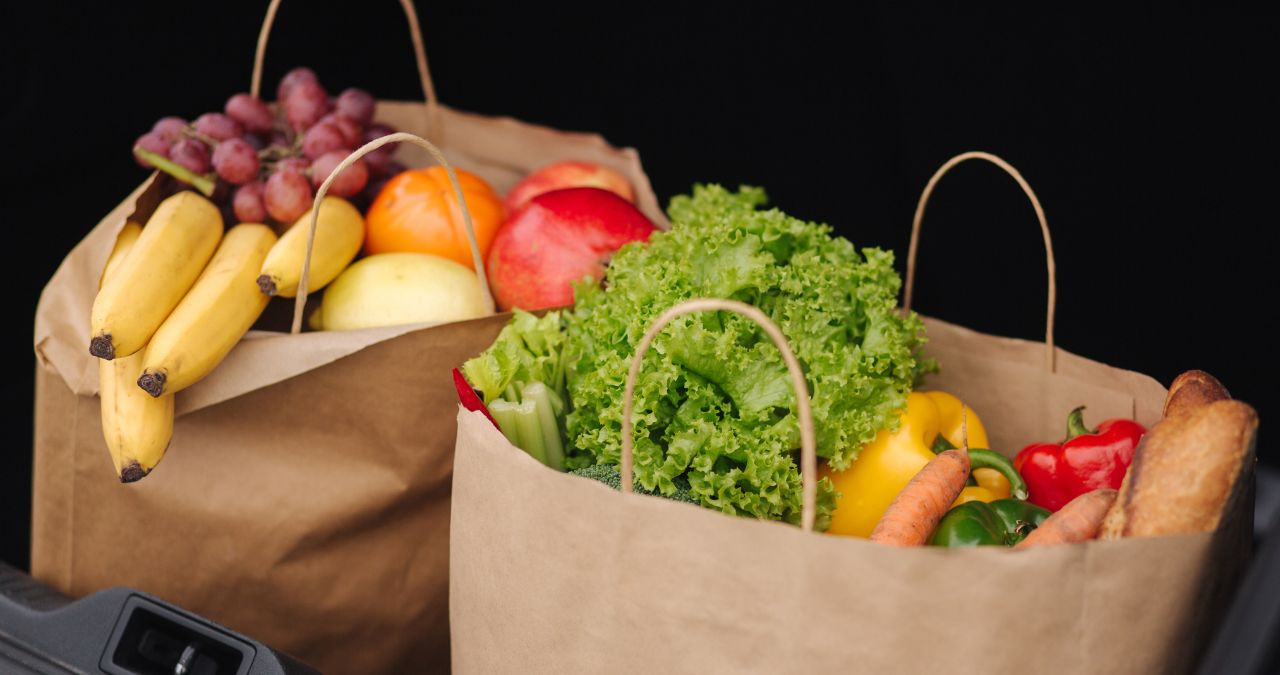Have you bought groceries online? The pandemic saw a massive shift in how we all bought food, beverages, and consumables. With grocery and retail stores implementing control measures to limit shoppers in-store, millions of people in the United States and around the world turned to buy what they needed online instead. Will that trend continue in 2023 and beyond? Let’s look into whether eCommerce will be a driving factor in grocery store sales in the future.
Will eCommerce Drive Grocery Sales?
Grocery Sales Online – The Stats Ending in 2022
Let’s start with the stats. According to Mercatus and Brick Meets Click survey data, online grocery sales fell 3 percent across the United States in October 2022 compared to the same period in 2021. Gross industry sales dropped to $7.8 billion, with grocery shoppers spending less per average transaction and placing orders less frequently.
Grocery deliveries accounted for approximately 37 percent of eCommerce orders, increasing from just below 36 percent in October 2021. The pickup share of the online grocery market was flat year-over-year. Grocery e-commerce sales are softening as more online customers are returning to stores to shop in person.
Online Grocery Sales – The Post-Pandemic Slowdown
While there’s a clear sign in the data showing a slowdown in online grocery sales year-over-year, buying groceries online is still a popular way for consumers to shop. Pandemic factors driving the market receded in 2022, but buying groceries online remains a popular option in the broad population.
For instance, the overall monthly active user base in the click-and-collect online grocery sector, including ship-to-home, pickup, and delivery orders, increased by 10 percent on October 2022 year-over-year basis. Delivery was up 10 percent, with pickup gaining 8 percent year-over-year. The ship-to-home segment, orders transported by carriers like UPS and FedEx, saw an increase of 6 percent.
Consumers Shift Back to Retail Giants
While consumers continue to order groceries online, 2022 saw a significant return of customers buying in-store from big box retailers like Target and Walmart. With pandemic fears waning, people no longer feared the virus and returned to in-store shopping.
This element of falling pandemic fears, coupled with rising inflation in 2022, saw mass merchants gain more market share away from traditional retailers due to price sensitivity from the consumer. Target is making significant gains in market share, and Walmart is seeing a consistent level of in-store and online grocery sales year-over-year.
According to the survey data from Mercatus and Brick Meets Click, of 1,732 adults participating, consumers state they prefer the shopping experience at big box retailers over traditional retailers.
With inflation creating a pinch for the consumer, households must allocate more income to grocery spending. Thus, the savings they make with mass retailers like Target and Walmart matter more than ever.
Online Grocery Sales – Growth in 2023
Despite the clear downtrend in online grocery sales in 2022 compared to 2021, going grocery shopping online remains a popular trend that looks to be here long term. According to data from The Mercatus Center, eCommerce grocery sales will enjoy a 9.5 percent market share on total US grocery sales in 2023, which is up markedly from 3.4 percent in 2019.
So, while eCommerce grocery shopping may be coming off a high from 2021 and slowing in 2022, it’s still improving on the 2019 pre-pandemic figure by over 250 percent. The Magid Consumer Motivations study features 4,000 participants aged 18 to 76, with 69 percent of participants stating they shopped for groceries more online in 2022 than in 2020 and 2021.
78 percent of participants expect to continue doing so in the future. The data is similar when we look at the Coresight “US Online Grocery Survey 2022,” where 54.3 percent of adults purchased their groceries online in the last 12 months. This figure is well above the 36.9 percent from 2019, despite being down from the 59 percent figure in 2021.
Online Grocery Shopping
To conclude, the pandemic created a glimpse into the future of online grocery sales and how eCommerce will play a significant role as a driving factor of adoption in the coming years. Despite health and safety concerns waning post-pandemic, many consumers enjoy the flexibility and convenience of shopping for their groceries online.
Additional Information: Cold Storage Demand Grows Among Tailwinds – CBRE
Cannonball Express Transportation
Cannonball Express Shipping Company has been providing top-of-the-line service at a reasonable rate. Based in Omaha, Nebraska, we provide nationwide refrigerated LTL services, as well as, local delivery services. Contact us today!
Nationwide Shipping Company Services:
- Refrigerated LTL deliveries in the lower 48 states
- Refrigerated Cross dock
Local Shipping Company Services:
- Redelivery Services
- Truckload & LTL Capabilities
- PUP
- Cross dock
- Transload
- Warehouse and Distribution capabilities from multiple Omaha Locations

